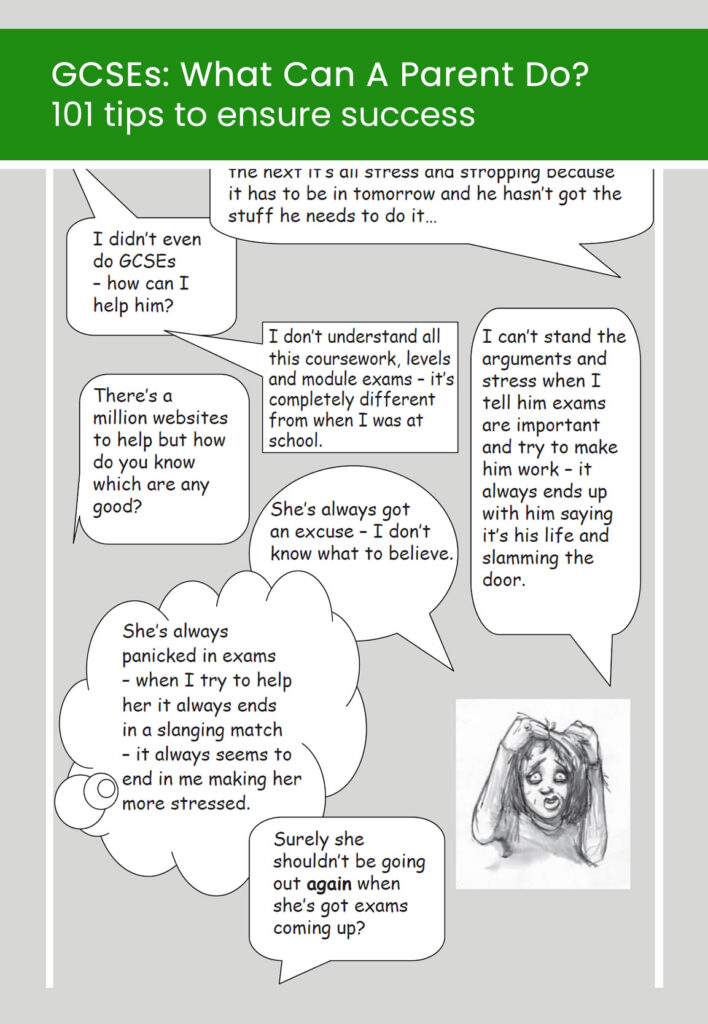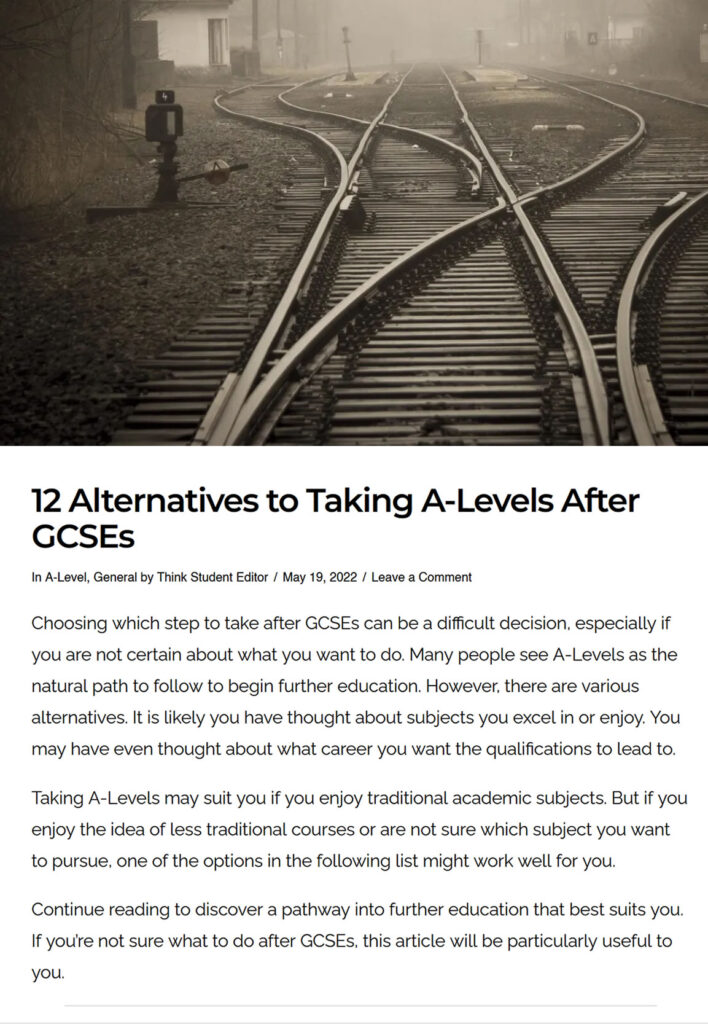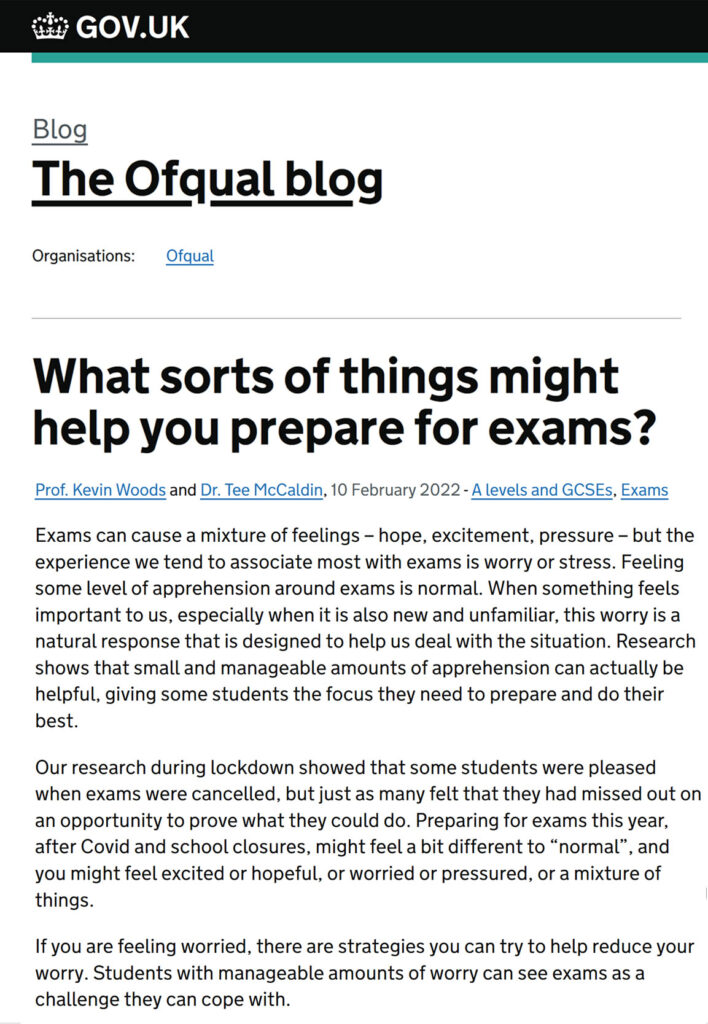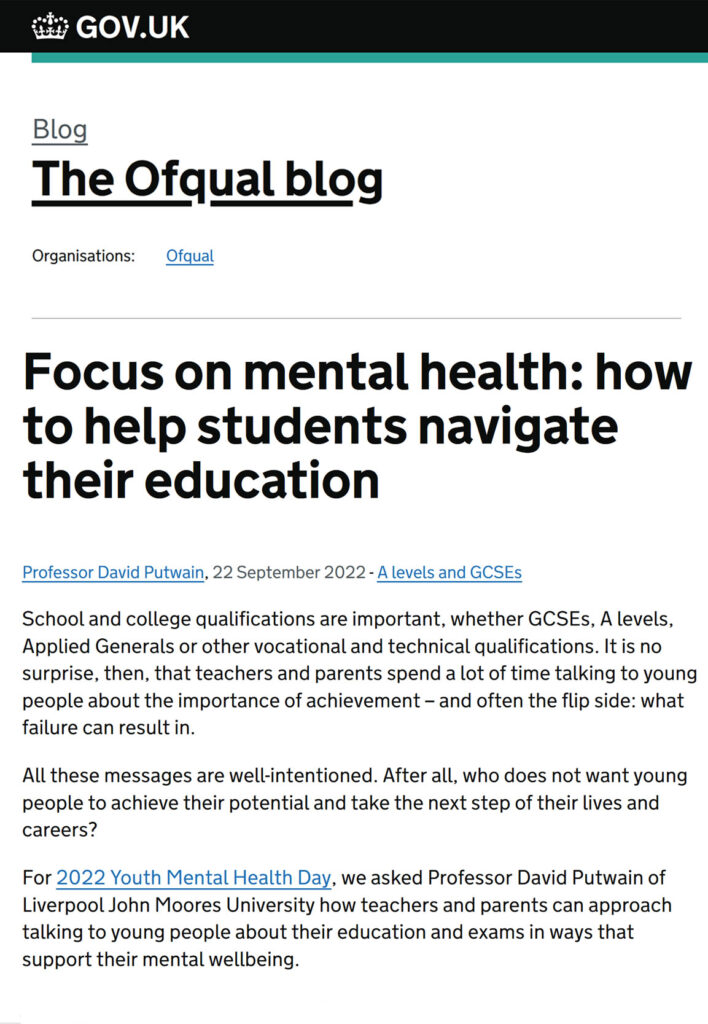GCSE & A-level Qualifications with Ofqual: What You Need To Know As A Parent
10th May 2023
Are you a parent or guardian of a GCSE or A-level student or a prospective parent who is considering the examinations in the future? This resource page is for YOU.
Share
We often hear from parents in the UK that the preparation for the GCSE & A-level examinations can be stressful for both the student and the parent.
Afrikindness Parent Team had a webinar session with Ofqual Associate Director for Policy and Strategic Relationships for General Qualifications, Sian Blount and Manager Policy and Strategic Relationships at Ofqual, Hazel Pitcher, to better understand the GCSE and A-level examination system.
Watch the webinar recording to learn about:
- The range of different regulated qualifications available, including GCSEs and A-levels.
- How qualifications are assessed and graded – including the grading arrangements for GCSEs and A levels this year after the pandemic.
- Support available to your child as they make decisions about their next steps.
- Information about how to cope with exam pressure.
Our expert speakers from Ofqual provided a clear explanation of how students are assessed and kindly provided written answers to some of the questions raised by parents during the session.
Ofqual provided written answers to some of the questions from parents. Please see their responses below. For your convenience, all questions and answers have also been compiled in this comprehensive document.
The Department for Education (DfE) announced that, in 2023, students are not required to memorise formulae for GCSE mathematics and equations for GCSE physics and combined science. This reflects their responsibility for GCSE subject content, and was a change that was also made for exams that took place in 2022 due to the disruption experienced by those year groups as a result of the pandemic.
A consultation was published seeking views on the proposals to continue to require exam boards to provide formulae and revised equations sheets for GCSE mathematics, physics and combined science exams in 2023 only.
Whether formulae and equation sheets are available in future year would be a decision for the DfE in line with their subject content.
No, predicted grades are not shared with exam boards.
The Department for Education is responsible for setting the subject content for GCSEs, AS and A levels. Exam boards can choose to offer a qualification in a subject based on the subject content set by the Department for Education. In addition, each GCSE, AS and A level specification offered by an exam board must comply with Ofqual’s qualification and subject level conditions for all GCSE, AS and A level qualifications. This includes the assessment objectives set by Ofqual, which detail the skills that must be assessed for each subject and the proportion of marks that must be available for each. The use of statistical predictions is important to support alignment between exam boards in a subject, so that it is no easier to get a grade in a particular subject with one exam board than another.
Your child’s school or college will choose which exam board their students will sit their exams and assessments with. Please speak to your child’s school or college for information about which specification they have chosen to deliver for each subject.
We are expecting results in 2023 to be similar to those in pre-pandemic years. The grading protection that we have introduced for GCSE and A level students means that a typical student who would have achieved a particular grade before the pandemic should be just as likely to do so in 2023, even if the quality of their work is a little weaker.
You should speak to your child’s school or college to understand the support your child requires.
No, exam boards are responsible for setting their own questions. Although all exam boards specifications are based on the same subject content set by the Department for Education.
As a private candidate, a student can register to sit an exam at another exam centre. You should speak to your child’s school as they may have a policy of making entries for students in additional subject to the ones they have studied in school.
Ofqual does not regulate exam centres (schools and colleges). Therefore, we cannot require or direct centres to make entries for students, including for private candidates.
If you would like to find an alternative centre in your area that may offer entry, the Joint Council for Qualifications (the exam boards’ representative body) has a list of centres accepting private candidates for this summer’s exam series: Private Candidates – JCQ Joint Council for Qualifications.
Education is a devolved matter in the United Kingdom, meaning that there is a different system in each of the nations in the UK. You can find out further information about qualifications in Scotland on SQA’s website.
Exams are available for GCSE English language and mathematics only in November, and only students who were aged 16 or above on 31 August of that year can enter. For all other GCSEs, they can be resit the following summer.
Your child’s school or college will decide whether they allow re-sits for a qualification. Exam boards do not specify a minimum grade for re-sits.
If your child’s school or college will not allow you to re-sit a qualification, you may need to look for an alternative centre.
If you would like to find an alternative centre in your area that may offer entry, the Joint Council for Qualifications (the exam boards’ representative body) has a list of centres accepting private candidates for this summer’s exam series: Private Candidates – JCQ Joint Council for Qualifications.
No, the same approach is taken for all students, irrespective of where they study. Exams allow each student to show what they know and understand from the curriculum and, importantly, everyone has the same chance to show what they know understand and can do. They are asked the same questions, at the same time, and they are marked in the same way, anonymously.
If your child is a private candidate, they must be registered to take their exams at a school, college or other exam centre.
Not all schools and colleges offer entries for private candidates. If you are looking for somewhere for your child to take their GCSE, AS and A level exams, you or your child can contact any school, college or other exam centre to ask whether they offer entries for private candidates. You can also use JCQ’s list of all schools, colleges and other exam centres that will make exam entries for private candidates.
If you have difficulties in finding an exam centre, the relevant exam board(s) may be able to help.
You should speak to your child’s school or college to find out when they plan to hold mock exams. In addition, exam boards often share past exam papers on their websites:
International GCSEs and GCSEs in England are different qualifications. We do not regulate International GCSEs and we have no powers to intervene in qualifications that we do not regulate. GCSEs are based on content specified by the government and must be assessed in line with Ofqual’s rules. The awarding organisations that offer International GCSEs each decide the content for those qualifications and how that content is assessed, which may legitimately be different to GCSEs. In England, International GCSEs have not counted in school performance tables since the corresponding reformed GCSEs became available.
Students have lots of choices for their next steps. The National Careers Service (NCS) provides free and impartial careers advice, information and guidance and runs a dedicated exam results helpline for students taking qualifications.
The Get the Jump content hub on the NCS website brings together all post-16 and post-18 education and training choices in one place. In addition, the UCAS website contains information for students considering their options, on traditional undergraduate degrees through to apprenticeships.
Please speak to your child’s school or college to find out what subjects are available for your child.
In recognition of the disruption that students have experienced, the following support has been put in place for students taking A level exams and assessments in 2023:
- Grading protection: protection in place for A level student cohorts.
- Spaced-out timetable: exam papers in the same subject well spaced out in the timetable.
We are expecting results in 2023 to be similar to those in pre-pandemic years. The grading protection that we have introduced for A level students means that a student who would have achieved an A before the pandemic should be just as likely to do so in 2023, even if the quality of their work is a little weaker.
There are resources for students and parents, such as Ofqual’s student guide to exams and assessments in 2023 and guide on coping with exam pressure. The Joint Council for Qualifications (JCQ) has information about exams and assessments on its website. In addition, the Department for Education has a blog about this year’s exam arrangements.
Awarding organisations decide how exam or assessments are marked. This could be paper based or online and could be marked by several different people. Markers don’t usually see your child’s name or which school or college they attend, so the marking is anonymous. Awarding organisations check markers’ work at every stage to make sure it is consistent and high quality.
If your child’s qualification includes non-exam assessment, for example practical work or a performance, this may be marked by the awarding organisation, or by their teacher according to the awarding organisation’s requirements.
You may find the following blogs on marking helpful:
Ofqual regulates a range of qualifications from entry level to level 8 qualifications, across 230 awarding organisations. You should speak to your child’s school or college for further information about the qualifications available and you can search for all regulated qualifications on the Ofqual Register
There are 4 exam boards recognised by Ofqual to award GCSE, AS and A level qualifications in England. Each exam board provides information about each specification on their website:
Your child’s school or college will be able to tell you, for each subject, which exam board your child will be sitting exams and assessments with.
Teachers mark non-exam assessments that are used for some subjects. When they do this, exam boards must moderate the teachers’ marking to make sure that it is accurate and consistent. This is normally done, at least initially, by checking a sample of the marking of each school or college to see if their marking is in line with national standards.
To make this possible, every school or college must provide a sample of their students’ work. The sample is set by the exam boards to include a sufficient number and range of student work (given different marks) to allow them to make a secure judgement about the standard of the school or college’s marking.
The sample is scrutinised by the exam board’s moderator. The moderator, who must have been trained by the exam board to carry out moderation, reviews the marking of the work to check that the mark scheme has been applied accurately (to the correct standard) and consistently.
If the moderator largely agrees with the marks, then the school or college’s marks remain, and they are used to calculate the final qualification grades for the school or college’s students.
In making this judgement, exam boards recognise that there may be some small differences between the marks given by the teacher and those given by the moderator that do not indicate that the school made errors in its marking. There may be legitimate differences in judgement between the school or college marker and the moderator about the exact mark they judge a piece of work should receive. Reflecting this, exam boards normally choose to put in place a small ‘tolerance’ between the marks the school or college give, and the moderator thought appropriate. It is only where the exam board finds that the difference between the marking of a
school or college, and that of the moderator, is greater than the tolerance that they will judge the marking to be inaccurate.





